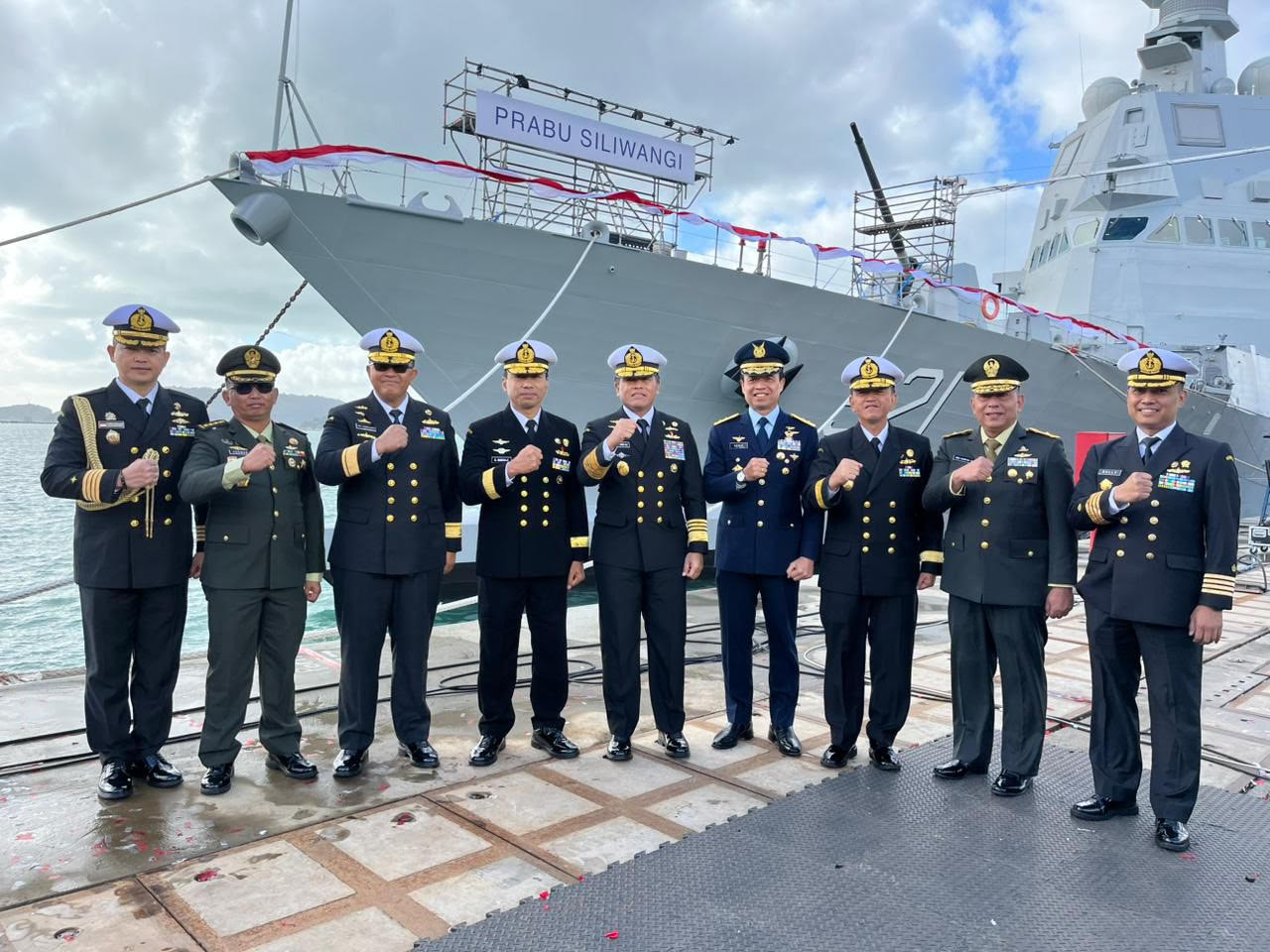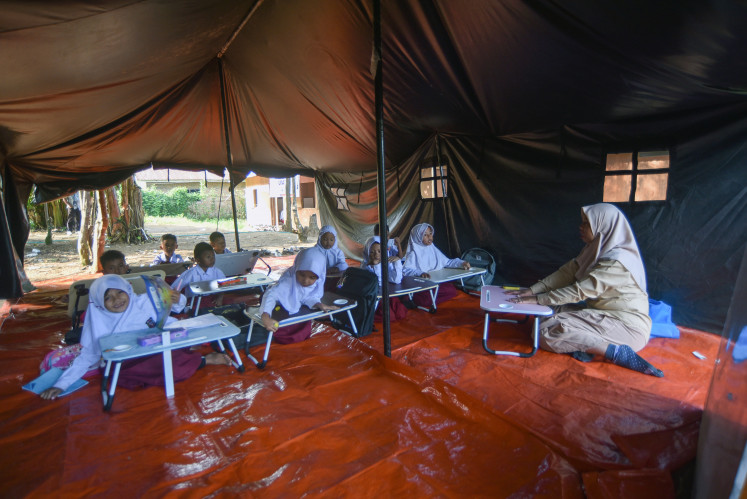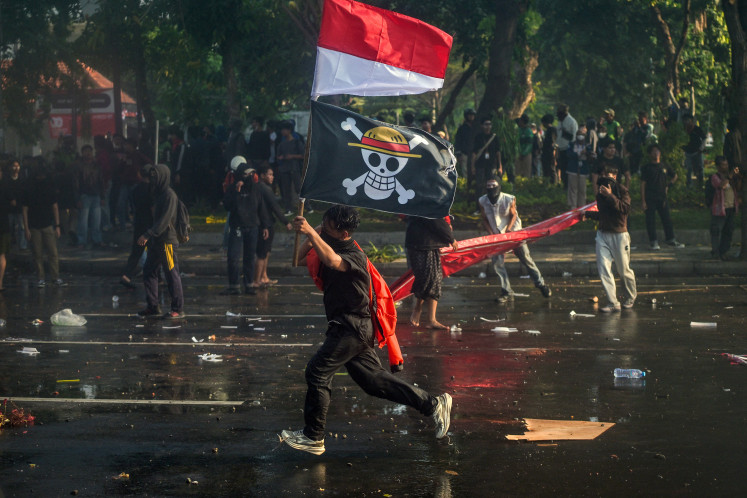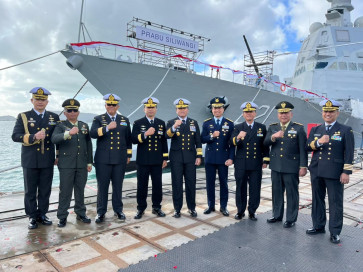Popular Reads
Top Results
Can't find what you're looking for?
View all search resultsPopular Reads
Top Results
Can't find what you're looking for?
View all search resultsA new course for Nusantara’s defense: Peace through strength
Indonesia is endowed with abundant resources yet impoverished in sovereignty; vast in territory yet constrained in resolve; populous yet fragile in strength.
Change text size
Gift Premium Articles
to Anyone
 Navy chief of staff Adm. Muhammad Ali (center) and other officers pose in front of the KRI Prabu Siliwangi during a naming ceremony at the Italian shipbuilder Fincantieri's facility in Muggiano, Italy, on Jan. 29, 2025. The Prabu Siliwangi is one of the two latest warships being named, the other being the KRI Brawijaya. (Courtesy of Indonesian Navy/-)
Navy chief of staff Adm. Muhammad Ali (center) and other officers pose in front of the KRI Prabu Siliwangi during a naming ceremony at the Italian shipbuilder Fincantieri's facility in Muggiano, Italy, on Jan. 29, 2025. The Prabu Siliwangi is one of the two latest warships being named, the other being the KRI Brawijaya. (Courtesy of Indonesian Navy/-)
T
he sea is the lifeblood, the soul and the inescapable destiny of Nusantara. Manila Bay bore silent witness to this truth when the Red-and-White fleet upheld our dignity on the eastern horizon.
On that December morning in 1987, then-president Soeharto drew back the curtains of his hotel suite. There, across Manila Bay, eight Indonesian warships stood arrayed like an impregnable wall of steel: four frigates, three amphibious ships and one command vessel. Puma helicopters roared overhead; fully armed Marines held the line as the Red-and-White flag snapped defiantly in the eastern wind.
Indonesia had come not merely to escort its leader but to project unbreakable authority amid the gathering storm of the ASEAN Summit. From behind the glass, the enigmatic Soeharto surveyed the sea without a trace of expression.
No staff college pedigree was required to recognize the essence of true power projection, the diplomacy of pen and sword. The Navy calls it "naval diplomacy." "Our forces do not merely preserve lives; they safeguard the nation’s honor in the eyes of the world." This was sovereignty laid bare: steel on blue water speaking with a voice more commanding than any utterance at the conference table.
Today, the Cold War is long over, but the geopolitical order is being rewritten at breakneck speed. Contested resources, sea-lane rivalries, overlapping claims and surging military power are the opening salvos of a profound global shift. China rises as a new superpower. America endures. Europe casts about for direction. Southeast Asia has become the central strategic theater of the century.
Straddling two oceans and two continents, Indonesia holds the master keys to four of the world’s most critical maritime chokepoints: the Malacca, Sunda, Lombok and Makassar straits. More than 63,000 merchant ships transit Malacca alone each year. About 70 percent of our oil and gas reserves lie beneath our own seabed, while 92 outermost islands still await the permanent imprint of sovereignty.
Here lies the agonizing paradox: we are endowed with abundant resources yet impoverished in sovereignty; vast in territory yet constrained in resolve; populous yet fragile in strength. For decades, our defense doctrine remained frozen, Java-centric on land, excessively cautious at sea and perpetually yielding in the air.


















